Complete Swim Biography
Intro
I’m writing this to document my memories with swimming over the past 10 or so years. I also think it will serve as a great reference I can point to whenever someone asks me about my history with swimming, which is something that’s happened a lot. We’ve got a lot to get through, so let’s begin.
Getting my feet wet
I’ve been swimming for as long as I can remember. So long, in fact, I do not remember a time when I didn’t know how to swim.
Like many others, I was introduced to swimming because my parents wanted me to feel safe around water. Somewhere along the line I ended up joining a club around age 8-9 and was swimming everyday. I wasn’t particularly good at this point, but I did enjoy being in the water. When you’re swimming, it’s very difficult to hear what’s going on outside of the water, and that’s something I was able to latch on to. Not necessarily being at peace, but being able to focus exclusively on the action at hand and ignore everything else.
My family moved to Austin when I was 11 and for some reason we decided not to join a club but instead to swim 3x1500s everyday at the UT rec center pool. This was incredibly monotonous and I would not recommend it to someone trying to get into swimming at any age. I continued to swim in spite of this with the overall goal of joining the high school team.

At this point I had basically no formal training or competition experience, and as a result had no idea how things operated with respect to racing, practice, or team dynamics. Basically, I had no idea what I was doing.
High School
My freshman year of high school was my first true exposure to the “team” aspect of swimming (or “team” aspect of anything, for that matter). I consider myself a pretty quiet person, but back then I hardly talked to anyone. Being surrounded by 20 or so other guys really allowed me to open up. Initially it seemed scary, but over time I was able to find my niche and make friends with teammates over interests outside of swimming.
I began by going to just high school practices. Our schedule was five days a week in the afternoon for about an hour each practice. Despite being in a relatively affluent area, our school did not have a pool, and we used a local neighborhood complex. These practices were much more varied than the training I had previously been doing, and I found myself improving quickly. At the end of the high school season (February), I had been talking to a few teammates who were club swimmers, and they all recommended that I join a club if I wanted to continue getting better.
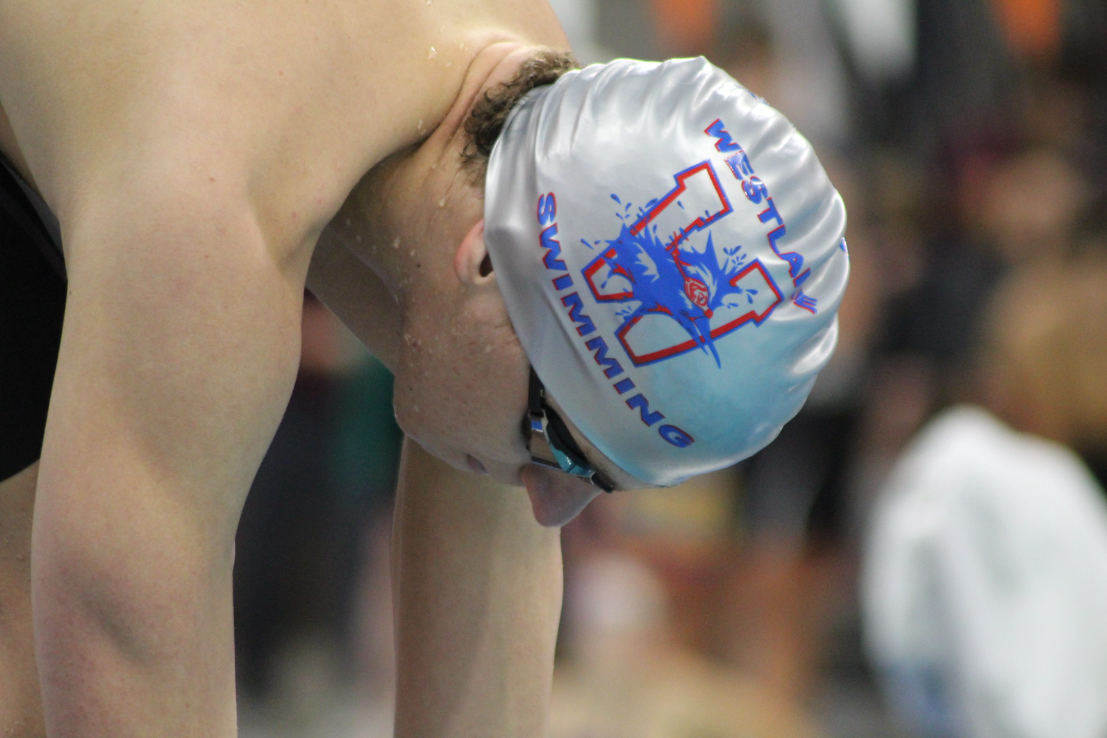
Club swimming
This is a good time to give some background on how swimming works at the age group level (around ages 12-18) and in high school. Unlike other sports such as football, basketball, and baseball, the high school team is generally not the most serious or premiere place to train at this level. What tends to happen is the high school team will only have one required practice a week where everyone on the team must show up, and the club swimmers are considered exempt from the other practices because they are assumed to be training with their club team everyday. High school sports in Texas are limited to one practice a day for a maximum of around an hour and a half while in-season, which for swimming was September to February. Club programs, however, do not have this limit. They often have two or three doubles (two practices in one day) in a week around two hours in length, with singles every other day of the week except Sunday, for the entire year. Your summer plans consist of swimming, sleeping, and eating. Holidays are replaced by training trips at best and staycations at worst.
I joined a club called Lost Creek Aquatics (now called Capitol Area Aquatics). We trained at a local country club in a six lane short course meters (SCM) pool. It was exciting being around swimmers who were more committed to training than those who just swam with the high school. The practices were much different and generally had a long distance focus to them. At the time, I knew that it was exactly the type of training that I needed, but some of the practices were still pretty brutal.
My second week of being on the club we did 50x100s on a very tight interval, which I initially didn’t think I would be able to make. Luckily, my friend who is also a distance swimmer, was doing the set with me, and I was able to draft off of them for the first 25, and then I took the lead for the next 25. Every Friday we also did the same lactate set: 5x100s all out from a dive on 10 minutes rest. The large amount of rest in between is meant to let the lactic acid in your muscles build up between each swim, and somewhat mimic the “feel” at the end of a mid distance race. Another time, the other boys and I were waiting inside the locker room since it was so cold outside and decided to stay in a little longer than normal. Practice started at 5:30am, so our plan was to get run on the deck at 5:29 in our suits and then immediately hop in. When we get down there, everyone else is already in the water, and our coach tells us we started at 5:25 despite never telling us this information beforehand. All of us then had to do 200 push ups on the deck before getting in. We then start at 5:25 for the reset of the season. It’s something I’m still a little salty about but looking back at it I feel like that really encapsulates club swimming as a whole. There are situations that come up that are shitty and you have no control over, but you learn to deal with it because your with your friends, and you’re all there for the chance to get better.
So the natural question is, why would club swimmers even bother with the high school team? There are a few reasons, but to put it briefly, the state championship of high school swimming, at least in Texas, is still a very competitive event and offers club swimmers another opportunity to swim at a high level. Because Texas is a relatively swim heavy state, the state level meet consolidates many swimmers from high schools across Austin, Dallas, and Houston who train with their club team but still represent their school. For me, I always enjoyed competing at high school meets. It was a time when I got to interact with my friends who went to different clubs, and swimming for your school creates a sense of pride that swimming for a club just doesn’t have.
College Recruitment
One of the main purposes of a club swim team, if implicitly, is to develop their swimmers to be recruited and eventually swim for a varsity team at the collegiate level. For the swimmers, this is used as a goal to work towards - “I need to go X time so I can get recruited by Y college, where I will develop and get faster or do any number of things”. For the clubs, it’s used as a form of advertising to attract new swimmers and an attempt to create a positive feedback loop - “Look at our club alumni swimming at Y college and kicking ass, you should get your child to join our system and this could be them”. Sometimes it’s hard to tell whether a swimmer is in it because they themselves want to be or because their parents forced them to, but high school is often when swimmers have matured enough to decide on their own.
You don’t get into swimming for the money. For men at least, there is very little scholarship money to go around, and the funds that teams do have is often used to recruit foreign national students. It makes sense though - families who can afford membership fees and all the other expenses for their child probably have a sizeable college tuition set aside. Side note - the recent settlement of House v. NCAA has opened the door for paying student-athletes directly. How this will affect Swimming & Diving programs remains to be seen but I don’t think it will change much. There’s a lot of doomer posting about how this will mark the end of non-revenue sports but I think that runaway case is pretty unlikely.
The recruitment process tends to work like this: a coach will scan a database for fast swimmers and send emails to them expressing interest. The head coach or other assistant coaches from their staff will then go to national and junior national level meets where many potential recruits will be swimming and introduce themselves in person. If the recruit and coach are both interested, the coach will extend an official visit offer, where the recruit spends the weekend at a school in the dorms living with members of the team.
College - The Grown Up Pool
I’m going to be a bit effusive here: swimming in NCAA D1 was awesome. I had the opportunity to race Olympic gold medalists, national record record holders, and people I would classify as more fish than human. I was able to push myself to be better and see myself improve year over year, on a team where I was exposed to people and cultures from all over the world. Most importantly, I was surrounded by a supportive group of friends and coaches who pushed me to be better every single day. It’s something I’m continuously grateful for and the friendships I made in this part of my life are something I’ll carry with me for a long, long time.
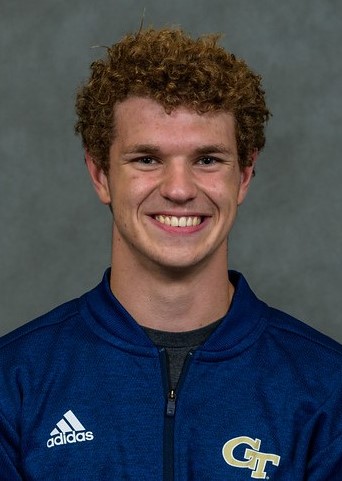
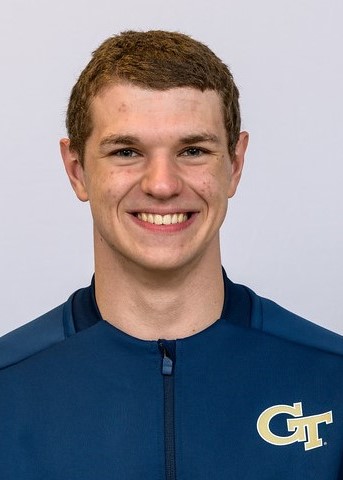

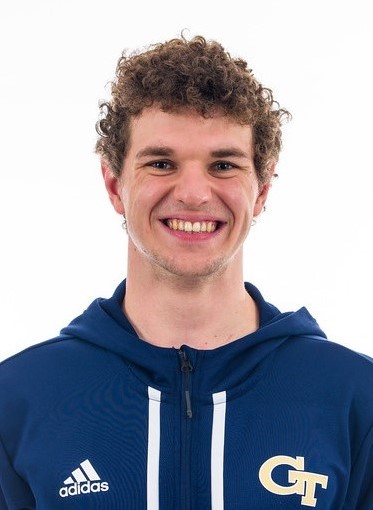
Not to say it was perfect all the time, there were some definite low points and times when I seriously questioned what I was doing. Like many parts of my story, this one deserves it’s own post, but know that studying engineering while also swimming full time presents a unique set of challenges. I was luckily able to figure it out through failure, iteration, and having a strong support system around me.
Freshman Year
I was welcomed onto the team at Georgia Tech despite being a shy, awkward teenager. Living with my teammates with amazing. The activation energy required to just hang out was basically zero. This might seem obvious in retrospect but it was really paradigm shifting for me at the time. Everyday presented an opportunity to socialize and grow closer as friends. I was still scared of the upperclassmen despite having no good reason to be other than them being older and bigger than me.
My club training had prepared me for the college regime and luckily I was able to make the transition fairly easily. I was enjoying the training and felt like I was getting better, and in spite of a lackluster mid season invite performance, I was selected for the conference team.
Conference comes around, and I was not prepared mentally. I completely collapsed in my races and
Sophomore Year
My coach had left to take another position at a bigger and faster university an hour and a half northeast of Atlanta (also his alma mater), so I had a change in my coaching as well as my training. Unfortunately, I did not respond well to this new training. I was both practicing and racing subpar throughout the season.
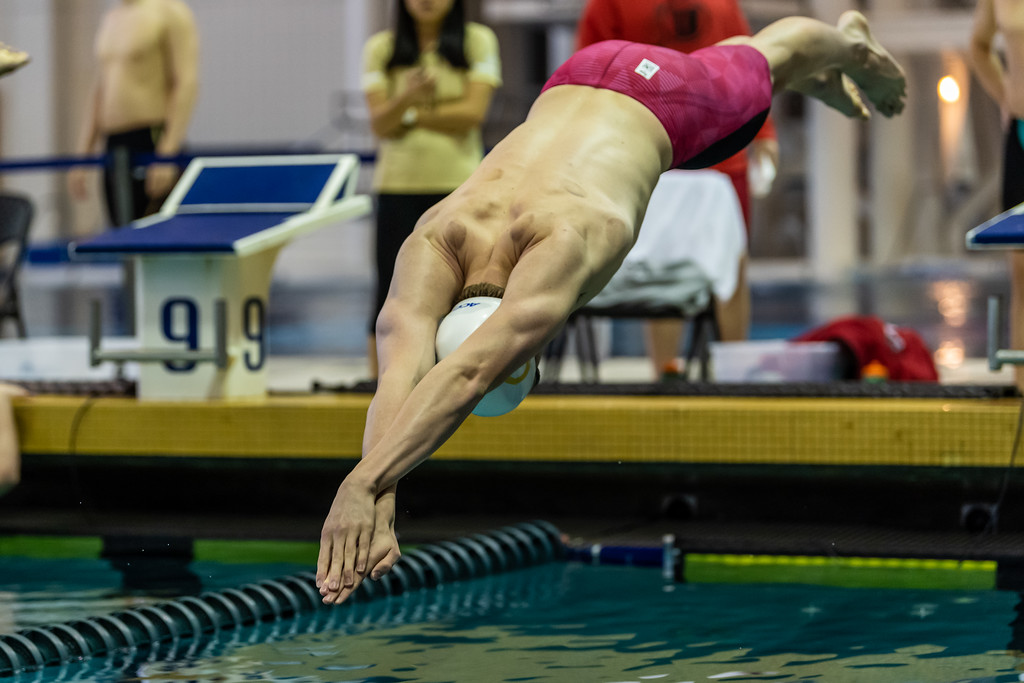
Understandably, I was not selected for the conference team, but was given a chance to swim at first chance meet - a meet right before the team was finalized to give fringe members a chance to make a claim to one of the last spots available. It was a two day meet and I was slated to swim the 500 and 1650 on days one and two respectively. Not ideal but we’ll take every opportunity we can get. Here’s how it went down:
- The first 500 in prelims was pretty bad. Ok, shake it off, refocus for finals at night that same day. I’m still in this.
- Finals at night was also a wash. Well, this isn’t good. I’m trying to keep an open mind going into this mile tomorrow, but I’m not exactly optimistic.
- Mile time. Hey, that isn’t so bad. In fact, it actually feels decent. Wow, a best time by nine seconds?
- There is one last final session at the end of the day. Afterwards, they will do time trials for anyone who signs up. Who would be crazy enough to do that?
- The time trial is about to begin. No one else is swimming the 500. I am alone behind the blocks but my team is watching on the side of the pool.
- As I swim, my teammates have spread to both sides of the pool so I can see them going both ways.
- I swim faster than I did the day before by twelve seconds and destroy my personal best by four seconds. I am mobbed by my team as I get out.
If you had read this in a sports manga, your eyes might have rolled out of your head. I wasn’t selected for the conference team. I didn’t care. Conference comes and goes and I support my team. There is still Olympic Trials coming up this summer that I can qualify for. Well, that didn’t exactly happen. Pandemic. Lockdown. End of the World. You know the rest.
Summer 2020
Everyone has a story about what they did during this time. Mine is more of the same - just trying to swim as much as possible.
There were a lot of great things about being home in Austin during lockdown. One of them is the fact that there is a river that runs through the middle of the city. There aren’t a lot of places with easy access to the river, but I had to get creative, and I told a few of my other friends what I was doing.

Swimming is banned in the lower section (Lady Bird Lake), but upstream of the Tom Miller dam, you can swim as long as you’re 20 yards from shore. I learned this because I was pulled over by a police and kindly explained this fact while still in the water.
Junior Year
[under construction]
Olympic Trials
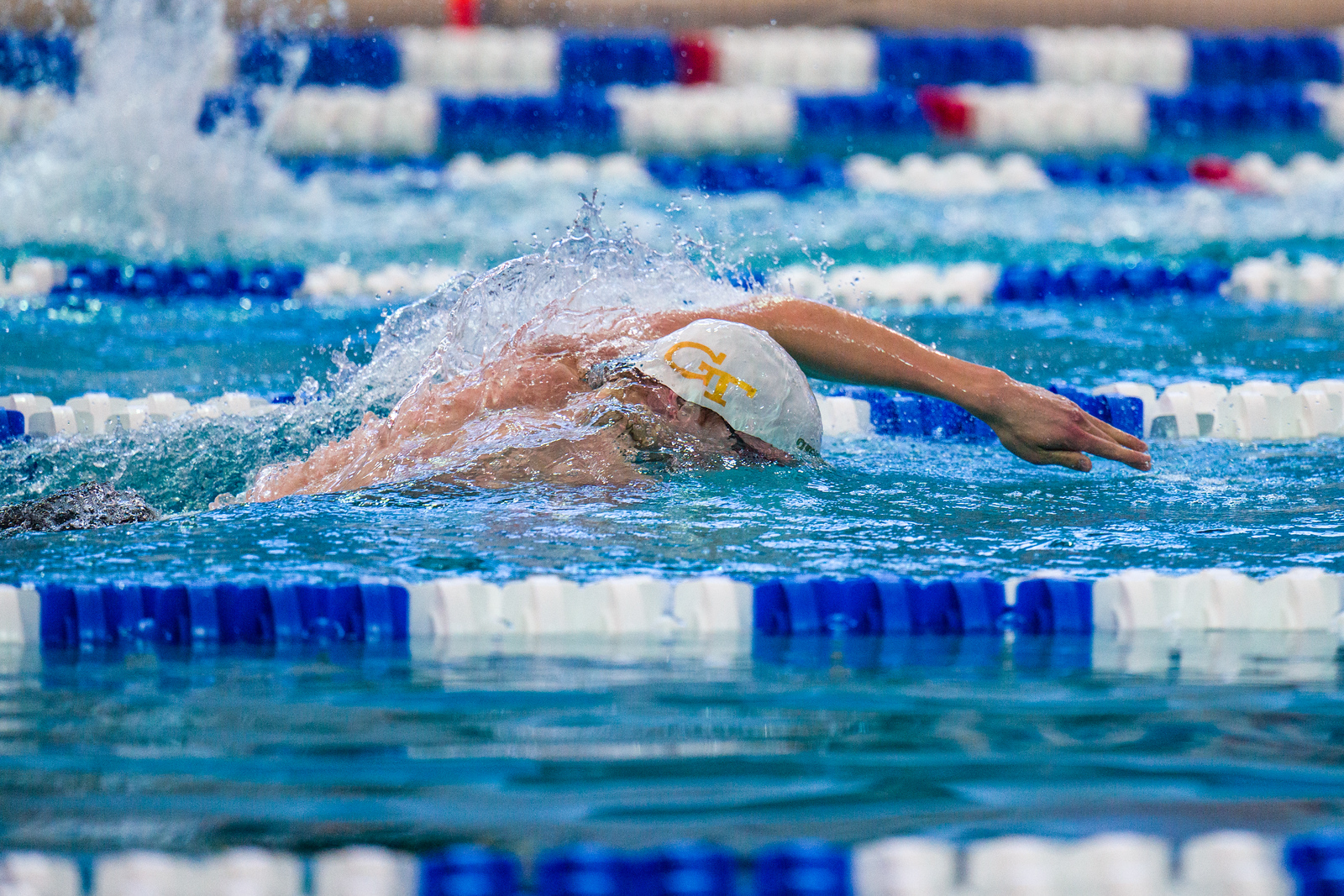

5th Year
After a successful undergrad career, and having apparently “figured everything out”, I was presented with the opportunity to swim an additional fifth year during my graduate studies. All the lessons I learned about training, socializing, and team dynamics, combined with a fresh new environment, on a team with a rich history like Michigan, coming off my best year yet. My stock was at it’s highest, so it seemed like a surefire success.
I wish I could say that’s how it turned out. To put it bluntly, I did not swim well. Like, not even at the level I was at in high school, performance wise. Of course, I still had a great time making friends on the team, being in a new place, and pursuing my graduate degree, but that is not the subject of this article.
Post Grad Swimming - The Deep End
One month. That how long I was able to keep myself out of the pool.
Present - Open water
My current goal is training triathlons. I still swim masters at Stanford as often as I can but it’s nice not to have the lingering pressure of having to consistently make every practice. If I want to sleep in, or if I’m just not feeling great in the water that day, it’s no big deal. In every sense of the phrase, I am at peace.
…
But maybe a little too at peace.
Enjoy Reading This Article?
Here are some more articles you might like to read next: